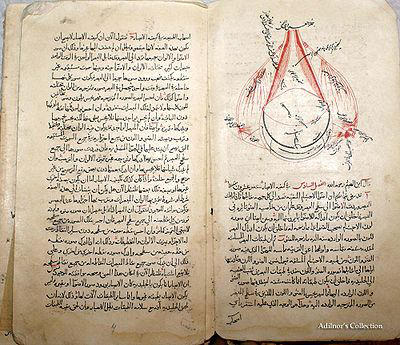Using AI to control energy for indoor agriculture
30 September 2024
Published online 22 December 2015
Ibn Al-Haytham’s scientific skepticism should be emulated across the Arab World.

There may be other aspects of the legacy of Ibn Al-Haytham (Alhazen) that are just as important for us to remember today.
While conducting research on optics, Ibn Al-Haytham relied on experimentation, observation and controlled testing to support his intromission theory of vision, proving that light was reflected off objects rather than emitted from the eyes. Having conducted all the experiments himself, the Book of Optics clearly lays out how readers can repeat all the experiments that led Ibn Al-Haytham to his theories.
He is often credited as the first person to lay the outlines of scientific method. Ibn Al-Haytham, who was known to be a devout Muslim as well, argued in support of scientific skepticism, even in the workings of scientists for whom he held great respect. Commenting on his study of the works of scientists that came before him, Ibn Al-Haytham is reported to have said:
“The duty of the man who investigates the writings of scientists, if learning the truth is his goal, is to make himself an enemy of all that he reads, and, applying his mind to the core and margins of its content, attack it from every side. He should also suspect himself as he performs his critical examination of it, so that he may avoid falling into either prejudice or leniency.”
As we celebrate the legacy of Ibn Al-Haytham, we would do well to remember the need to uphold his critical approach to science, and to life, a thousand years later. The media in the Arab world is regularly plagued by stories of ‘scientific breakthroughs’ ranging from the useless to the absurd – culminating in 2014’s announcement in Egypt of a machine that can treat hepatitis C virus, HIV and a host of other viruses.
The Arab world has seen the seeds of a renaissance in science over the past few years. Research institutes are springing up in many countries and passionate scientists are trying to address issues that have been stagnant for decades, if not centuries. It is an uphill battle, but one which we must take up.
In these times, we must also remember the legacy of Ibn Al-Haytham, and realize it is a lynchpin of this renaissance.
Scientific method and skepticism must not only be part of research, but part of the lives of citizens across the Middle East. It can be applied to everything, and we need a society that can be critical and that is willing to search for truth wherever it may be.
In his Doubts Concerning Ptolemy, Ibn Al-Haytham argues that “Truth is sought for its own sake. And those who are engaged upon the quest for anything for its own sake are not interested in other things. Finding the truth is difficult, and the road to it is rough.”
The Arab world now needs to stay on this road, no matter how tough it is, to really be part scientific renaissance that has spread across the developing world.
doi:10.1038/nmiddleeast.2015.248
Stay connected: